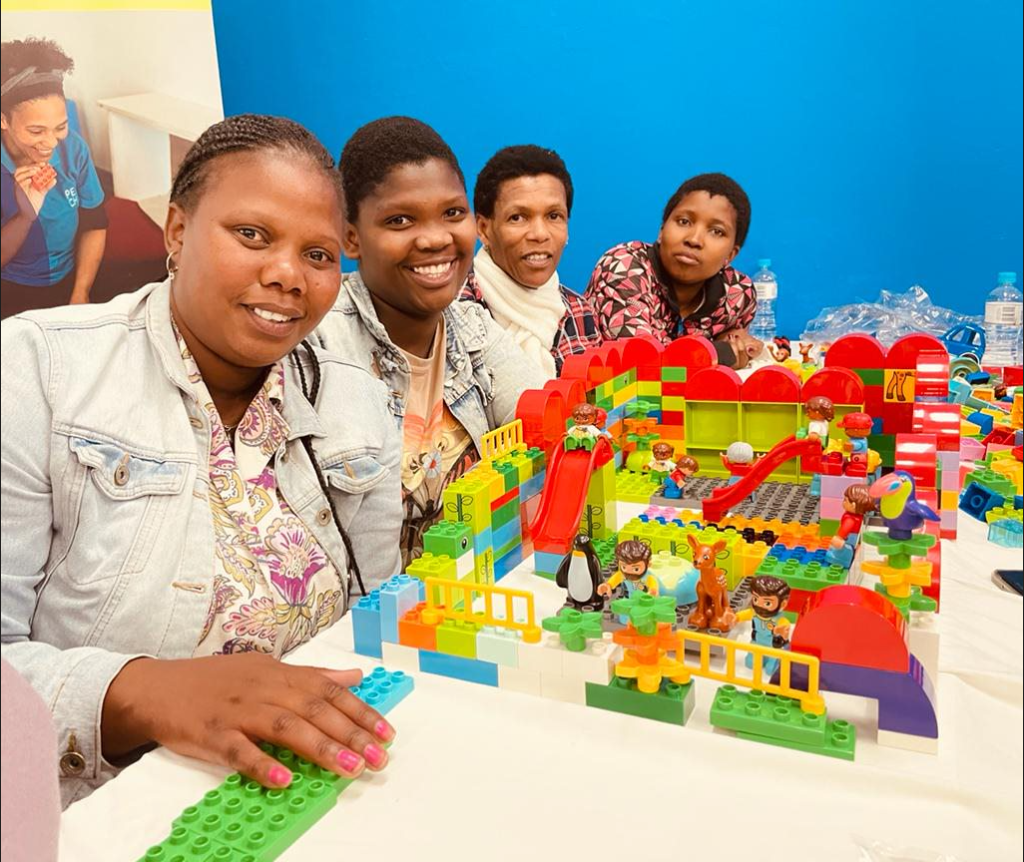Around 90% of South African Early Childhood Development (ECD) practitioners are unqualified or underqualified, according to the North-West University’s Faculty of Education. It’s not surprising then that a mere 45% of children who are currently attending ECD programmes are developmentally on track. “Given that these programmes are meant to prepare children for school, it is vital that the situation is remedied,” says Deb Zelezniak, CEO at the Santa Shoebox Programmes, who explains that there are three key reasons why caregivers are underqualified. “
Firstly, many ECD centres serve simply as places of safety where children can remain during the day, as opposed to learning environments. Secondly, in the past, educators received their training from non-governmental organisations (NGOs) and now hold qualifications that are not recognised by the Department of Basic Education (DBE). Lastly, furthering one’s education is a prohibitively expensive exercise, especially in the current cost-of-living crisis, with practitioners earning between R3 160 and R18 100 per month.”
“As a result, the majority of children attending ECDs are behind on their literacy and numeracy skills as well as on their fine motor and gross motor development. In some instances, there are children entering Grade 1 who have never held a book in their hands. It makes sense then that the latest Progress in International Reading Literacy Study (Pirls) has found that 81% of Grade 4 learners are unable to read for meaning in any language,” she highlights.

Zelezniak points out that undertrained carers do not, for example, understand the value and impact of learning through play, which is one of the shortfalls at many of the country’s ECDs. “Play is a foundational tool for learning, since it enables the development of intellectual, social, emotional and physical skills – all of which are crucial for later life.”
To address this, the Santa Shoebox Programmes has, in partnership with ORT SA Cape and Singakwenza, trained more than 500 practitioners in 2-years, focussing particularly on learning through play and the development of perceptual skills. “While the immeasurable value of the nurturing and kindness that the majority of ECD practitioners bring cannot be replaced by formal qualifications, the women and men who are entrusted with these precious children feel disempowered by their own lack of knowledge, which I believe is a violation of human rights.”

Joyce Cwayi a caregiver at Ulutho Educare Centre in Mitchells Plain, who previously took part in this training shares that it was a very powerful experience. “We learnt that a simple box of Lego could be used to teach the children how to differentiate colours, how to count, and about prepositions. At the same time, these blocks could be used to stimulate their imaginations – enabling them to build whatever they could think of from cars and airplanes to cakes. The kids have responded so positively, especially as some don’t have such things at home.”
She also attended a workshop where she learnt how to make toys from waste products such as skipping ropes from bread bags and spades from yogurt cups. “This has helped us when it comes to planning our lessons since we can make our own resources. Even the parents get involved by bringing us their recyclables.”
Cwayi adds that she and other past participants share what they have learned with other practitioners so that more children can benefit. “We don’t always get this kind of training with the Department of Basic Education, but Santa Shoebox is there for us.”
As part of the Santa Shoebox Programmes’ 18th birthday celebrations, 18 under-qualified practitioners will be selected to undergo NQF Level 4 training, resulting in them achieving National Senior Certificate equivalency and setting them up to pursue tertiary education. “Over the last 17 campaigns, we have been confronted with the profound lack of amenities and resources available to under-privileged children in their formative years and feel it is imperative to address these in a meaningful way,” says Zelezniak.
She concludes by encouraging corporates and individuals to partner with the non-profit organisation in upskilling more ECD educators. “Now, more than ever, we need to train the trainers who are responsible for our children’s development. Ultimately, the country’s future depends on it, with research showing that investment in high-quality programmes can deliver a 13% return per child, per year through better outcomes in education, health, social behaviours and employment.”

